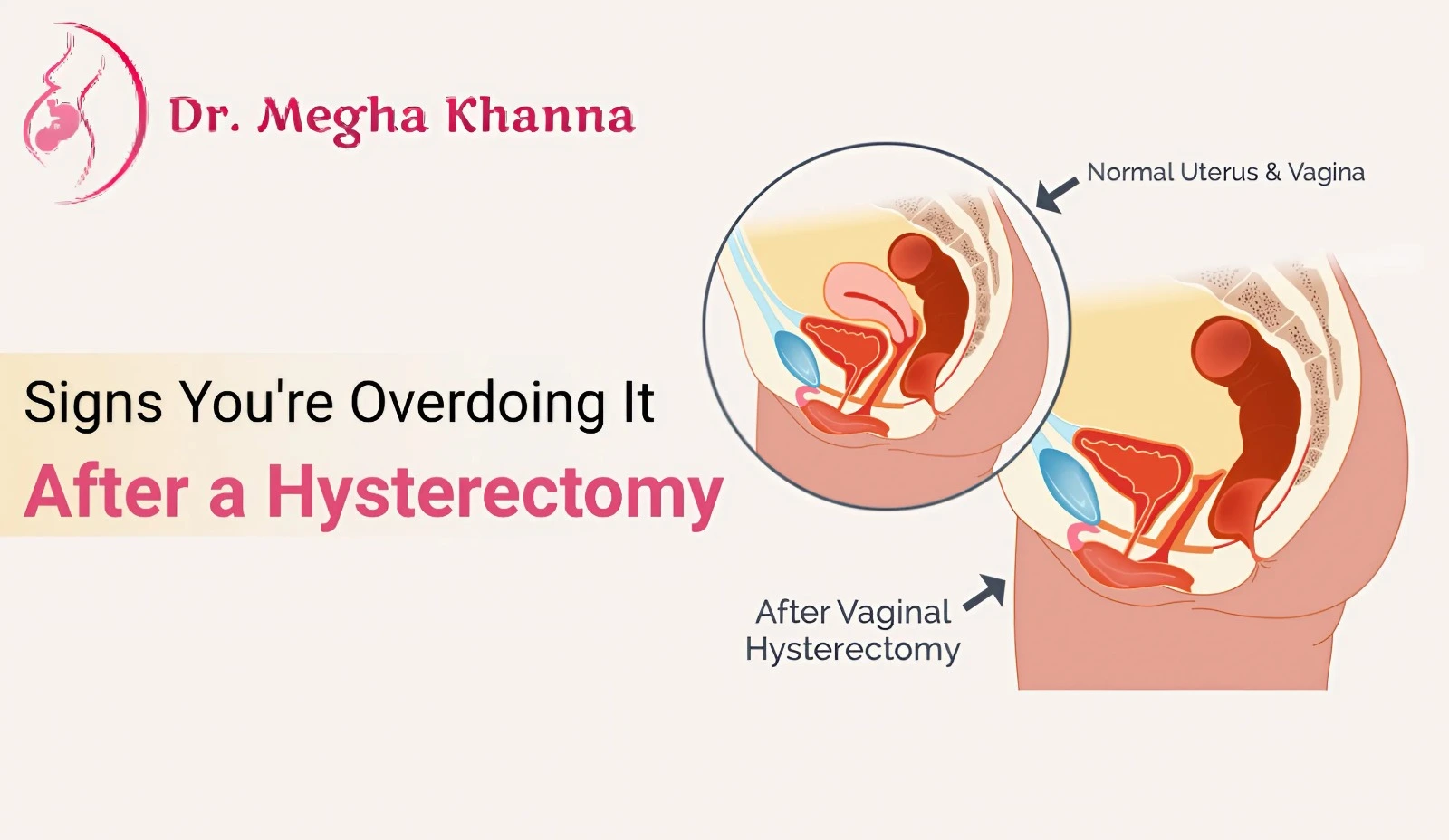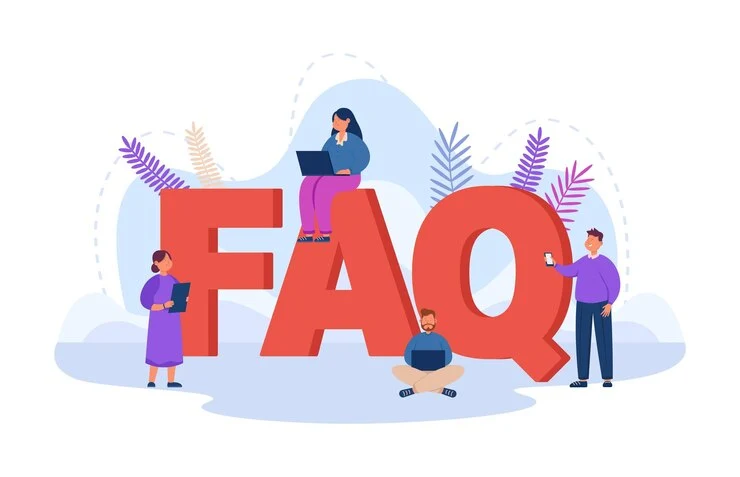-
Ganesh Talkies, Kolkata
Ganesh Talkies, Kolkata

Hello Reader!
Welcome to the blog page of Dr. Megha Khanna, one of the best lady gynecologist in Kolkata.
A hysterectomy—the surgical removal of the uterus—is a major procedure that many women undergo for various medical reasons such as fibroids, heavy bleeding, endometriosis, uterine prolapse, or cancer. While the surgery can be life-improving, the recovery process requires patience and care.
As one of the best lady gynecologists in Kolkata, I have often seen patients unknowingly delay their healing by doing too much too soon. Whether the surgery was performed abdominally, laparoscopically, or vaginally, understanding the limits of your post-operative body is crucial.
In this blog, let me guide you through the key signs that you’re overdoing it after a hysterectomy and how to ensure a smoother recovery.

One of the earliest and most obvious signs that you’re overexerting yourself post-hysterectomy is unexpected vaginal bleeding. While light spotting may be normal, bright red bleeding or an increase in flow indicates that you may be straining your internal sutures.
If you notice a sudden change in bleeding, consult with the best lady gynecologist in Kolkata without delay to avoid complications.
Mild discomfort is expected during healing. However, if your pelvic or abdominal pain increases instead of gradually subsiding, it’s a red flag.
This could mean:
As a trusted lady gynecologist in Kolkata, I always advise my patients to listen to their bodies—if something doesn’t feel right, rest and seek medical attention.
For those who’ve undergone abdominal or laparoscopic hysterectomy, watch your incision sites. Overdoing physical activities can cause:
These are not just signs of overexertion but also possible signs of infection, which should be treated immediately. Don’t ignore these symptoms—consult one of the best lady gynecologists in Kolkata for prompt care.
Feeling tired is a natural part of healing. But if you’re experiencing debilitating fatigue—to the point where you’re unable to complete even basic daily tasks—it may be your body signaling that you’ve gone too far, too soon.
Hysterectomy is not just physically demanding, but also emotionally and hormonally taxing, especially if the ovaries were removed. Allowing yourself time to rest is not a luxury—it’s a necessity.

Straining after a hysterectomy can affect surrounding organs like the bladder or bowels. Symptoms such as:
…could mean you’re not following the post-op care regimen carefully.
As one of the best lady gynecologists in Kolkata, I emphasize hydration, fiber-rich diets, and gentle walking to support bowel and bladder health without overexertion.
While not always linked to physical overexertion, mental stress and hormonal changes post-hysterectomy can affect your overall well-being. Trying to get “back to normal” too quickly can worsen feelings of anxiety, depression, or mood swings.
Give yourself permission to heal—not just your body but your mind, too. As the best lady gynecologist in Kolkata, I recommend emotional counseling and support if these symptoms persist.
Also Read: Pelvic Pain After Hysterectomy: Causes and Treatments

Recovering from a hysterectomy is a gradual process, and knowing the difference between normal healing and signs of overexertion is essential for your safety and well-being. Here’s how you can distinguish between the two, with expert guidance from the best lady gynecologist in Kolkata:
According to the best lady gynecologist in Kolkata, you may be overdoing it if you notice:
“Every woman’s recovery is unique. Listen to your body, follow your doctor’s instructions, and don’t hesitate to seek help if something feels wrong. Erring on the side of caution ensures a smoother and safer recovery after hysterectomy.” — Guidance from the best lady gynecologist in Kolkata

You can differentiate between normal recovery and signs that you need to rest more after a hysterectomy by carefully monitoring your pain and bleeding patterns.

You can distinguish normal bleeding from signs of a complication after a hysterectomy by paying close attention to the amount, duration, and characteristics of your bleeding, as well as any accompanying symptoms.
Seek medical advice if you notice any of the following:
Listening to your body’s signals is crucial for a safe recovery after a hysterectomy because it helps you recognize when you need to rest, avoid complications, and promote optimal healing. After a hysterectomy, your pelvic tissues and surgical sites are especially sensitive and require time to heal properly. By paying attention to symptoms such as pain, fatigue, or unusual bleeding, you can prevent overexertion, which is a common cause of setbacks during recovery.
Ignoring your body’s cues—like increased pain, swelling, or discharge—can lead to complications such as infection, wound reopening, or delayed healing. On the other hand, respecting signs of fatigue or discomfort allows you to rest and recuperate, which is essential for tissue repair and overall recovery.
Healthcare professionals and recovery experts consistently emphasize that every woman’s recovery is unique, and pacing yourself according to your body’s feedback is key to minimizing risks and ensuring a smooth return to normal activities. If you notice any warning signs or feel unsure, it’s important to seek advice from your doctor promptly.
In summary, listening to your body after a hysterectomy is not just about comfort—it’s a vital part of preventing complications and ensuring a safe, steady recovery.

If you experience increased vaginal bleeding, worsening pelvic pain, extreme fatigue, or swelling around the incision, you may be overexerting yourself. Always listen to your body and rest when needed.
Light spotting can be normal, but bright red bleeding or an increase in flow is a sign you might be overdoing activities and should consult your doctor.
Yes, doing too much too soon—like lifting heavy objects or walking excessively—can delay healing or cause complications. Follow your gynecologist’s recovery plan strictly.
Persistent or increasing pelvic or abdominal pain, especially after movement, may indicate you’re pushing your body beyond its limits.
Contact your doctor if you notice heavy bleeding, severe pain, fever, swelling, or unusual discharge—these are signs you may be overexerting or facing an infection.
Recovery after a hysterectomy is a personal journey, and no two women will heal the same way. However, knowing the signs of overexertion can prevent serious complications and help you return to normal life sooner and healthier.If you’ve undergone a hysterectomy or are planning one, and need expert guidance on pre and post-operative care, don’t hesitate to consult with Dr. Megha Khanna, the best lady gynecologist in Kolkata. With proper support, healing becomes smoother, safer, and more empowering.